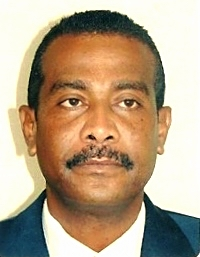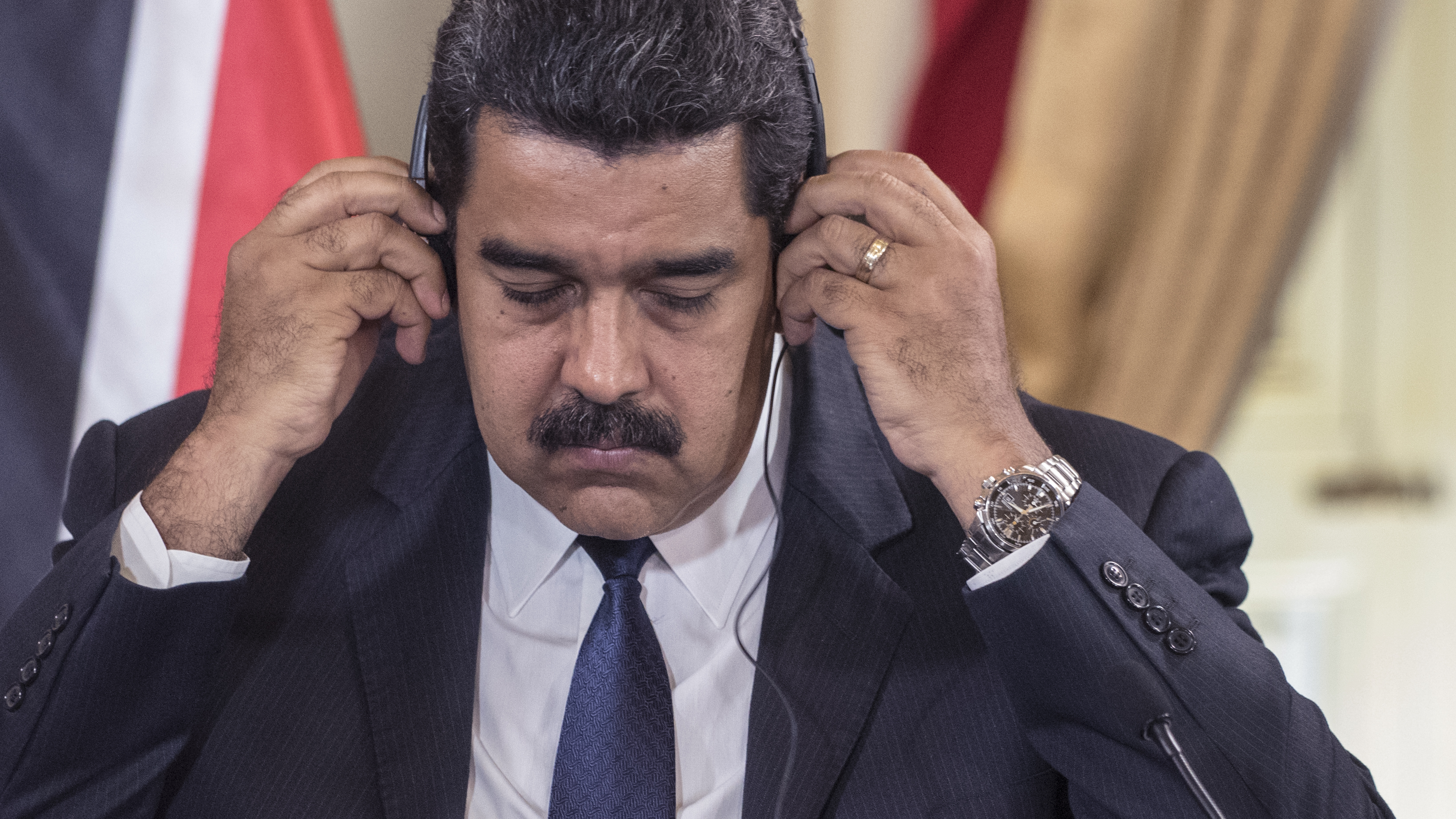Sudan in 2021: A Human Rights-First Road Map for the Biden Administration
International support for Sudan’s fragile transition to democracy must include targeted assistance for key human rights reforms and accountability efforts to secure justice for victims of past abuses.

Published by The Lawfare Institute
in Cooperation With

In December 2020, Sudan’s transitional government celebrated the official removal of the country from the U.S. State Sponsors of Terrorism list, nearly two decades after its initial inclusion. Sudan’s delisting—accompanied by a bridge loan from the U.S. to liquidate Sudan’s arrears to the World Bank—paves the way for much-needed access to debt financing and development aid. As Sudan’s economy continues to flounder, with soaring inflation and a 500 percent increase in electricity prices marking the beginning of the new year, international financing will make a critical difference in achieving economic stability.
This news is a welcome development for Sudan. In the coming months, much attention should rightly be paid to the reforms to eliminate corruption and strengthen banking controls that are needed to facilitate any increased international spending in the country. But long-term peace in Sudan hinges on both economic prosperity and social stability. For this reason, a focus on encouraging foreign investment and aid spending in Sudan must be accompanied by continued international support for human rights reforms.
Since former President Omar al-Bashir’s ouster in early 2019, Sudan’s transitional government has taken several encouraging steps to remedy serious human rights violations that occurred under the al-Bashir regime, including criminalizing the practice of female genital mutilation, amending the notoriously oppressive public order laws that governed women’s behavior and increasing collaboration with the United Nations Office of the High Commissioner for Human Rights.
Yet significant human rights concerns continue to threaten Sudan’s democratic transition. The police, intelligence services, and Rapid Support Forces—a paramilitary force linked to gross human rights abuses in Darfur and elsewhere—retain outsized influence in the country. Recent reports indicate that torture and enforced disappearances remain a tool for suppressing dissent and instilling fear in Sudan, and government forces continue to use excessive force against peaceful protestors in the capital, Khartoum, and around the country. The planned withdrawal of the U.N. peacekeeping operation in Darfur in the first months of 2021 sparked fears of increased armed conflict; and indeed, in the early weeks of January, an estimated 90,000 people were displaced and several hundred wounded or killed as a result of tribal violence in the restive state.
In addition, widening divisions between the civilian and military components of Sudan’s transitional government will complicate any U.S. interventions in Sudan. Some commentators grumble within Sudan that the military wields greater decision-making authority than the civilian technocrats appointed to represent a diverse, fractured coalition of opposition groups, and disagreements over policy approaches, including on key transitional justice issues, have spilled into public view in recent months. As a result, even seemingly good-faith efforts by the civilian components to achieve essential milestones, such as the creation of a Legislative Council, have not yet borne fruit. Frustrated with the slow pace of reforms, and increasingly disillusioned with the transitional government, Sudanese protesters have taken to the streets with renewed energy since December 2020.
To address these and other challenges, the Biden administration should prioritize linking financial aid to the meaningful advancement of key human rights issues and, relatedly, shoring up the civilian component of Sudan’s transitional government. Both direct technical assistance and debt relief funds should be calibrated to prevent the enrichment and strengthening of Sudan’s military leaders—who control major slices of the private sector, including in the lucrative mining industry, and have thus far manipulated reform efforts to advance their business interests.
In particular, supporting the transitional government’s civilian leadership in achieving their reform agenda and meeting the demands of the Sudanese people requires targeted assistance for—and sustained international attention on—three priorities.
First, securing accountability for those most responsible for the gravest human rights violations committed under al-Bashir remains a top priority. Some of these individuals have left Sudan, making domestic prosecutions impossible for procedural and due process reasons. Washington should put its diplomatic muscle behind efforts to extradite any such perpetrators, such as Salah Gosh—the former head of the feared National Intelligence and Security Service, which was rebranded in July 2019 as the General Intelligence Service—who is now believed to be in Egypt.
Human rights defenders continue to face significant obstacles in reaching victims of human rights abuses in Sudan. For example, ongoing efforts by local and international organizations to support the International Criminal Court (ICC) in upcoming proceedings are hindered by security concerns and a lack of access to Darfur and other states. The Biden administration—expected to adopt a softer posture toward the ICC than its predecessor—should exert pressure on Sudan in key multilateral forums to open Darfur to the ICC and Sudanese activists alike. And the U.S. should seize the opportunity to demonstrate its renewed commitment to accountability for international crimes by supporting calls for al-Bashir to stand trial at the ICC, either in The Hague or through a hybrid court based in Khartoum.
The U.S. should also provide technical support to ensure that the transitional government is prepared to thoroughly investigate and bring to justice those involved in the killing and torture of protesters since late 2018, including perpetrators at the top of the chain of command. Currently, public prosecutors are tasked with investigating alleged violations on an ad hoc basis, but these prosecutors lack the necessary resources and technical capabilities, and they rely on victims’ families to provide evidence. Instead, the U.S. should make concerted efforts to assist the transitional government in establishing a designated special public prosecution committee or specialized court that is empowered to provide victims’ families with adequate reparations.
Second, the United States should encourage Sudan’s rapid ratification without reservations and implementation of critical human rights treaties, including the Convention against Torture and the International Convention for the Protection of All Persons from Enforced Disappearance. The Convention on the Elimination of All Forms of Discrimination against Women (CEDAW) is also among these—but the U.S. would do well to ratify CEDAW first, before pressing its foreign counterparts to do the same.
Ratification of treaties is only the first step in a much longer process of bringing Sudan’s domestic laws in line with international law. Where needed, the U.S. should offer technical advice and support in the drafting of implementing legislation, and it should fund civil society efforts to educate the general public on “know your rights” campaigns and other local monitoring efforts to ensure greater levels of treaty compliance. Training the police, security forces and judiciary on international standards is also an important and much-needed measure in ensuring compliance with international law.
Third, the U.S. should pay attention to issues of representation in Sudan’s nascent democratic and civic space. Women and marginalized groups must be included in government and in all reform processes, at every level—from consultation to implementation. Despite the integral role women played in the 2018 and 2019 protests that wrought the end of the al-Bashir regime, women were largely left out of subsequent peace negotiations. Today, only two women sit on the Sovereign Council, Sudan’s 11-member military-civilian governing body. Similarly, few women sit on the national commissions and committees formed after the 2019 revolution. Additionally, while the Legislative Council and Constitutional Court have, at the time of writing, not yet been formed, women are unlikely to be equally represented in either body. A democratic body that is not representative is hardly democratic.
Combating inequality and ensuring the meaningful inclusion of victims in ongoing transitional justice processes requires the development of policies that improve participation in key governance structures. Donor attention in this area is critical. The U.S. should systematically integrate gender perspectives in all programs in Sudan, including any planned economic reform initiatives.
In the early days of his presidency, Biden and his team of foreign advisers have a window of opportunity to support Sudan in making meaningful inroads on needed human rights reforms. The opening up of Sudan’s economy may herald a period of economic liberalization, but any progress on economic reforms should not be at the expense of human rights priorities. The Sudanese people have a vision for a new nation based on the rule of law, democracy and human rights—the Biden administration should take this vision seriously as it considers any interventions.




